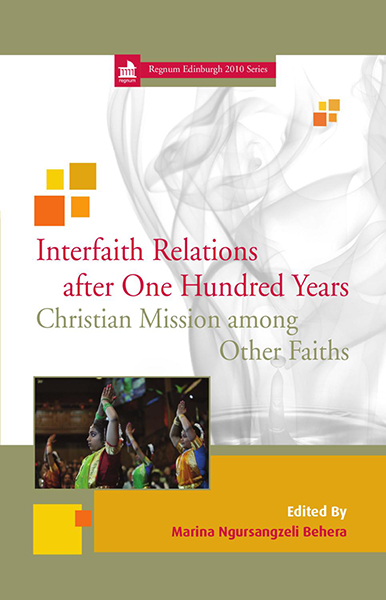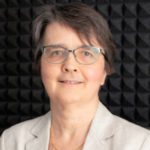A key dilemma faced by theological educators is that, whereas most students are in the South, many of the resources are in the North. Recently, an African colleague gave me some insight into his situation in an email apologizing for not having time to contribute to a book series: ‘This morning I walked into a class on Soteriology and counted 104 students taking the course! Tomorrow morning I have another 50 in my Pentecostal Studies class!’
Imbalance between South and North
What a joy it was to have large numbers of students in South Korea and India in the 1980s and 1990s, and how hard it is currently to recruit for theology in Europe. Here in the North there are more opportunities for research and producing textbooks but there is a poverty of theological community, whereas in the South there is a paucity of learning resources and a shortage of qualified faculty.
Here in the North there are more opportunities for research and producing textbooks but there is a poverty of theological community.
When the Apostle Paul urged the Corinthians to participate in a collection for the believers in Jerusalem, who were facing famine, he justified it as ‘a question of a fair balance between your present abundance and their need, so that their abundance may be for your need, in order that there may be a fair balance.’ Today there is an imbalance between South and North in theological education that similarly needs addressing so that, in the body of Christ and in the kingdom of God, neither has too much or too little (2 Cor 8:13-15).
Paul’s words above imply that the present state of affairs is not a permanent one. We can even expect a scenario in which the needs will be reversed. In fact we already see it changing:
- Although, throughout the North, the overwhelming majority of church leaders have theological education, sometimes to doctoral level, overall enrolment in theological education is declining, including in evangelical schools.
- In the South, many churches are led by people without the benefit of theological education and without access to it. However, although concrete data on theological education in the South is lacking, regional theological associations report rapid growth. Moreover, some faculty at institutions in the South now have higher levels of faculty qualifications to enable them to offer doctoral degrees.
Despite the shifting picture, the absolute majority of teaching staff, scholarship funds, theological libraries and publications are still located in the North. Furthermore, the decline of theological education in the North, together with the ongoing effects of the 2008 financial crisis, has restricted the already-limited funds available from the North for theological education in the South.

Stimulating sharing through missional theological education
Despite the financial constraints, there is much that can be done to address the current imbalance in theological education between North and South. I shall give some practical examples and suggestions of resource sharing below. However, in order for this to happen, we need the kind of theological education that encourages such sharing.
Despite the financial constraints, there is much that can be done to address the current imbalance in theological education between North and South.
The Cape Town Commitment calls for theological education that is biblical and missional (CTC II F 4). It asserts that ‘theological education is intrinsically missional’ and it calls on theological educators to ‘ensure that it is intentionally missional’ (CTC II F 4A). Mindful of Christ’s commission to disciple all nations, missional theological education will serve the whole of global Christianity and not only the privileged few. Mindful of the love of God for all people, theological education will be done in a way that is respectful of local contexts and the giftedness of others.
One of the reasons for the inadequate resource sharing is that theological education—both in the North and the South—is dominated by models developed to serve the institutional church of a largely homogenous community in a particular locality.
Along with the development of missional church, we need missional theological education. Becoming missional is not just a matter of adding in optional courses in ‘missiology’ or ‘global Christianity’; it requires a paradigm shift in the way the entire theological curriculum is taught. This change is happening:
- Biblical studies is recognizing the cultural and regional diversity of the early church.
- Systematic theology is taking account of the systems of thought in Asia, Africa, and indigenous peoples.
- Church history is becoming integrated with mission history, and recognizing the polycentric nature of Christian movements.
- Practical theology is focusing not only on local but also on global questions and on their interconnectedness.
When we learn through our theological education to value the whole church—diverse, multicultural, global, and interdependent—we will realize the importance of resource sharing. The Lausanne Movement can be a catalyst to speed up change, which needs to take place in the accrediting agencies as well as the institutions for theological education.
Theological education suffers under the legacy of colonial relationships of dependency and under capitalist assumptions.
Another reason for lack of sharing is that theological education does not always take account of world Christianity, which is polycentric. Instead it suffers under the legacy of colonial relationships of dependency and under capitalist assumptions that value is represented by material wealth.
In a post-colonial world, partnership[1] has become a key word to describe mutual respect and recognition of need on both sides. Partnership in theological education recognizes that learning is a two-way process and demands that, as the Kenyan theological John Mbiti once said, ‘we know one another theologically.’[2]

Theological resource sharing: examples
There are some great examples of sharing of both human resources and learning resources. It is only possible to refer to a selection of these.
![]() Theological exchange programs
Theological exchange programs
At the human level, a missional theological education requires encounter with people from other contexts. The Langham Partnership facilitates the sharing of human resources—North to South and South to South—through theological exchange programs. Engaging with Christians from other parts of the world educates about world Christianity and builds the whole church. In a climate of market-driven competition between schools, such partnerships help to avoid Northern institutions undercutting theological provision in the South.
![]() Capacity building
Capacity building
To bring equality in theological education, Christian agencies have to work against the dominance of the North in higher education globally, discourage the ‘brain drain’ from South to North, and find ways of capacity building in the South. The Oxford Centre for Mission Studies has a long history of facilitating students from the South to obtain doctoral degrees in the North while minimizing the cost and the time spent away from their families. The Center for Missiological Research at Fuller Theological Seminary and the Mission Theology in the Anglican Communion project facilitate sabbaticals for faculty from the South for research purposes.
![]() Shared research
Shared research
Resource sharing can also take place through shared research. Probably the most significant example in mission studies was the Edinburgh 2010 project that prepared for the centenary of the 1910 World Missionary Conference. The project, which was funded by global church bodies and mission agencies across all the denominations, mandated the involvement of the whole of world Christianity. This was achieved by bringing together, under each of the nine study themes, groups and institutes from different regions.
So, for example, the report on Mission Spirituality and Authentic Discipleship was informed by researchers from CMS-UK, the Oxford Centre for Mission Studies, the Akrofi-Christaller Institute in Ghana, the Instituto de Misionología at the Universidad Católica Boliviana in Cochabamba, and the Commission on World Mission and Evangelism of the World Council of Churches. The resulting report to the conference was a dialogue between all of these.
![]() Mediated learning
Mediated learning
New online communications platforms allow for mediated learning and for many different modes of delivery of theological education. The webinar, for example, can generate a truly global audience and meaningful intercultural interaction. Northern institutions can share this software, and also their expertise, so that webinars and other global conversations can be initiated from and within the South. The provision of online education is dominated at present by Northern institutions and agencies, many of whom recruit from the South. However, partnership arrangements could offer students in different regions, including the North, the opportunity to take courses originating from the South.
![]() Learning resources
Learning resources
The most acutely felt need in the South is for learning resources. Most academic works and textbooks are published in the North but are too expensive for students and even libraries to buy. Access to electronic resources may be similarly limited because these are controlled by the same publishing houses.
The Langham Partnership and SPCK have long been leading the effort to produce affordable literature for theological education produced by scholars in the South as well as the North. However, the growth and global spread of the internet has opened new possibilities for developing common learning resources. There are several projects to make theological resources available to students in the South and across global regions. The most extensive—with 650,000 items—is GlobeTheoLib. It was initiated by Globethics.net and the World Council of Churches to provide a common platform for existing digital resources and theological libraries with free access in multiple languages.

On a smaller scale, Regnum Books International produced the books of the Edinburgh 2010 project and then developed these into the Regnum Edinburgh Centenary Series of 35 volumes on mission and evangelism in world Christianity. Through the funding of church and mission agencies, and the generosity of Regnum, these are available for free download from the Regnum website as PDF files. Further funds have been raised to convert each volume into a more readable and searchable online form. This material not only allows sharing of mission theology and practice globally but also provides a database of world Christianity for further research.
Even the primary sources and archives needed to research Christianity in the South may be held in the North. Yale Divinity School Library, among others, is working to digitize mission archives, which will make them more readily accessible in the South. The Dictionary of African Christian Biography, led by African scholars and based at Boston University, aims to produce an electronic database to record the lives of those chiefly responsible for laying the foundations, shaping the character, and advancing the growth of Christian communities across Africa. There is a sister Biographical Dictionary of Chinese Christianity.
The Regnum and Boston projects in particular not only share Northern resources with the South but also make Southern resources available globally, including in the North. This is another necessary part of correcting the imbalance in theological education. Some Northern-based academic journals—such as the leading mission studies journals—encourage articles from scholars in the South, whose work may not otherwise be known there. There are also now several book series that aim to represent world Christianity. However, it has to be said that many Northern theologians do not yet recognize their need of reading insights from the South. This is their loss, and convincing them of this is an important dimension of developing missional theological education.
Conclusion
The technologies are there to facilitate global theological resource sharing. There is a way but what is needed is a will. Resource sharing between North and South is not another means by which the former can help the latter ‘develop’ but a reciprocal activity with mutual benefits. The examples above show that it is missional theological education that values the whole church that is the key to unlocking theological resource sharing between North and South.
Further resources
Association of Theological Schools (ATS), 2015 State of the Industry Webinar. Available from http://www.ats.edu/resources/publications-and-presentations.
S. Bevans, T. Chai, N. Jennings, K. Jørgensen and D. Werner (ed.s), Reflecting on and Equipping for Christian Mission, Regnum Edinburgh Centenary Series 27 (Oxford: Regnum Books,2015).
Edinburgh 2010 Project, www.edinburgh2010.org.
GlobeTheoLib, Global Digital Library on Theology and Ecumenism, http://www.globethics.net/gtl.
Sebastian Kim and Kirsteen Kim, Christianity as a World Religion: An Introduction, 2nd ed. (London: Bloomsbury, 2016).
Lausanne Movement, ‘Effective Theological Education for World Evangelization’, Lausanne Occasional Paper No. 57 (2004). Available from https://lausanne.org/category/content/lop.
Lausanne Movement, 2012 Consultation on Global Theological Education, Gordon-Conwell Theological Seminary, USA, 29 May 2012 – 1 June 2012. Videos available at https://lausanne.org/tag/theological-education.
Regnum Edinburgh Centenary Series. Downloadable from http://www.ocms.ac.uk/regnum/list.php?cat=3.
D. Werner, D. Esterline, N. Kang and J. Raja (ed.s), Handbook of Theological Education in World Christianity: Theological Perspectives, Ecumenical Trends, Regional Surveys (Oxford: Regnum Books, 2010).
Endnotes
- Editor’s Note: See article by Phill Butler entitled, ‘Is Our Partnership for the Kingdom Effective? Evaluating Ministry Partnerships and Networks’ in January 2017 issue of Lausanne Global Analysis https://lausanne.org/content/lga/2017-01/is-our-collaboration-for-the-kingdom-effective.
- J. Mbiti, ‘Theological Impotence and the Universality of the Church’, in G. H. Anderson and T. F. Stransky (ed.s), Third World Theologies (New York: Paulist, 1976), 17.

